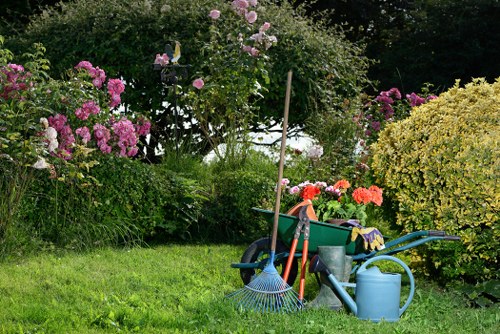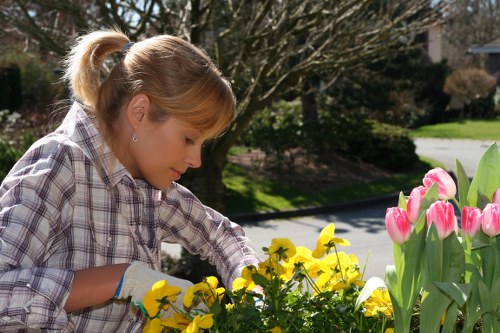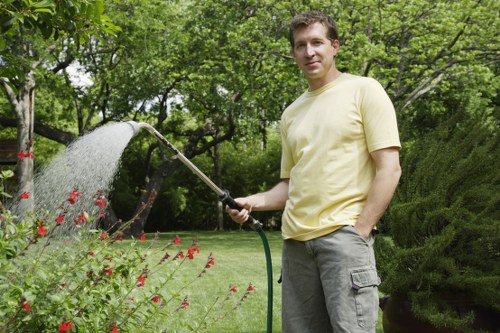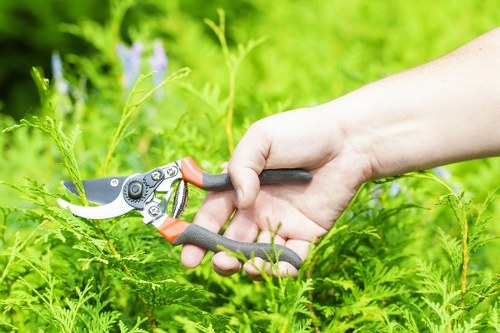Pressure Washing Ware: Everything You Need to Know

Pressure washing is a powerful method for cleaning surfaces, effectively removing dirt, grime, mold, and mildew. In Ware, pressure washing services have become essential for homeowners and businesses looking to maintain the appearance and longevity of their properties. Whether it's your home, driveway, deck, or commercial building, pressure washing can rejuvenate surfaces, making them look brand new.
Understanding the different types of pressure washing equipment and techniques is crucial for achieving the best results. From residential to industrial applications, the right approach can make all the difference. This article delves into the essentials of pressure washing ware, providing you with the knowledge needed to make informed decisions for your cleaning projects.
In this comprehensive guide, we'll explore various aspects of pressure washing, including the tools involved, best practices, safety measures, and the benefits it offers. Additionally, we'll highlight the top pressure washing services in Ware and nearby areas, ensuring you have all the information you need to maintain a clean and inviting environment.
What is Pressure Washing?

Pressure washing, also known as power washing, uses high-pressure water spray to remove contaminants from surfaces. It's an effective cleaning method for a variety of applications, both residential and commercial. The intensity of the water stream can be adjusted depending on the surface being cleaned, making it a versatile solution for many cleaning challenges.
Different pressure washing machines vary in power and capacity. Some are designed for light-duty tasks, such as cleaning vehicles or patios, while others are built for heavy-duty use, like cleaning large commercial buildings or industrial equipment. Choosing the right equipment is essential to ensure effective cleaning without damaging surfaces.
Pressure washing is not only about aesthetics; it also helps in maintaining the integrity of structures. Regular cleaning can prevent the buildup of harmful substances that can cause decay or deterioration over time.
Types of Pressure Washing Equipment

There are several types of pressure washing equipment available, each suited for different tasks:
- Portable Pressure Washers: Ideal for light to medium-duty tasks around the home, such as cleaning cars, patios, and decks.
- Commercial Pressure Washers: Designed for heavy-duty cleaning, these machines are commonly used by businesses to maintain large buildings, sidewalks, and parking lots.
- Hot Water Pressure Washers: These units use heated water to tackle tough stains and grease, making them suitable for applications like kitchen exhaust systems and industrial equipment.
- Cold Water Pressure Washers: Best for general cleaning tasks where high temperatures are not required, such as washing windows and siding.
Selecting the right type of pressure washer depends on the specific cleaning needs and the scale of the project.
Benefits of Pressure Washing

Pressure washing offers numerous benefits, including:
- Enhanced Curb Appeal: Regular pressure washing keeps your property looking clean and well-maintained, increasing its overall appeal.
- Prevents Damage: Removing harmful contaminants can prevent the deterioration of surfaces, extending the lifespan of your property’s exterior.
- Health and Safety: Eliminating mold, mildew, and other allergens contributes to a healthier environment for occupants.
- Cost-Effective: Maintaining surfaces through pressure washing can reduce the need for expensive repairs or replacements in the long run.
- Time-Efficient: Pressure washing is a fast and efficient cleaning method, saving you time compared to manual scrubbing.
These benefits make pressure washing a worthwhile investment for both residential and commercial properties.
Pressure Washing Techniques

Proper techniques are essential for effective pressure washing. Here are some key practices:
- Start from the Top: Always begin washing from the highest point and work your way down to prevent dirty water from streaking already cleaned areas.
- Maintain the Right Distance: Keep the nozzle at an appropriate distance from the surface to avoid damage. Typically, 12-18 inches is suitable for most surfaces.
- Use the Correct Nozzle: Different nozzles produce varying spray patterns. Choose the right one based on the cleaning task at hand.
- Move Consistently: Maintain a steady, consistent motion to ensure even cleaning and prevent fainting streaks.
- Apply Cleaning Solutions When Needed: For stubborn stains, use appropriate cleaning agents in conjunction with pressure washing to enhance effectiveness.
Adhering to these techniques helps achieve optimal results while safeguarding surfaces from potential damage.
Safety Measures for Pressure Washing
While pressure washing is highly effective, it’s important to follow safety measures to prevent accidents and damage:
- Wear Protective Gear: Always use safety goggles, gloves, and appropriate footwear to protect yourself from debris and high-pressure water spray.
- Inspect Equipment: Regularly check pressure washers for any signs of wear or damage before use.
- Avoid Electrical Hazards: Keep the pressure washer away from electrical outlets and avoid spraying near power lines.
- Be Cautious with Electrical Devices: Don’t spray directly onto electrical components or outlets to prevent electrical shocks.
- Know Your Surroundings: Be aware of the area around you to avoid spraying windows that could shatter or steps that could create slippery surfaces.
Following these safety measures ensures a secure and effective pressure washing experience.
Choosing the Right Pressure Washing Service in Ware
Selecting the right pressure washing service in Ware involves considering several factors:
- Experience and Expertise: Look for companies with a proven track record and knowledgeable staff.
- Equipment Quality: Ensure the service uses high-quality, well-maintained pressure washing equipment suitable for your specific needs.
- Customer Reviews: Check reviews and testimonials to gauge customer satisfaction and reliability.
- Pricing: Compare quotes from different providers to find a service that offers good value for money.
- Insurance and Licensing: Ensure the company is properly insured and licensed to protect against any potential liabilities.
By taking these factors into account, you can choose a pressure washing service that meets your requirements and delivers excellent results.
Local Areas Near Ware for Pressure Washing Services
Ware is surrounded by several areas that also benefit from top-notch pressure washing services. Here are some of the closest areas:
- St Albans: Just a short drive from Ware, St Albans offers a range of pressure washing services catering to both residential and commercial clients.
- Hatfield: Known for its charming homes, Hatfield residents often seek professional pressure washing to maintain their properties’ curb appeal.
- Harpenden: With a mix of modern and traditional buildings, Harpenden requires specialized pressure washing techniques to suit different surfaces.
- Stevenage: This thriving town benefits from commercial pressure washing services that keep businesses looking their best.
- Knebworth: Knebworth’s picturesque surroundings mean that pressure washing helps preserve the beauty of outdoor spaces and structures.
- Royston: Royston residents utilize pressure washing to keep their homes and gardens clean and inviting.
- Welwyn Garden City: A blend of residential and commercial areas in Welwyn Garden City requires diverse pressure washing solutions.
- Bishops Stortford: With its bustling town center, Bishops Stortford benefits from regular pressure washing to maintain cleanliness in public areas.
- Saffron Walden: Historic buildings in Saffron Walden require careful pressure washing to preserve their architectural integrity.
- Grantham: Grantham’s large properties and commercial establishments rely on professional pressure washing services for upkeep.
Each of these areas near Ware has unique features and requirements, making pressure washing a vital service for maintaining their distinct environments.
Maintenance Tips After Pressure Washing
After pressure washing, proper maintenance ensures that surfaces remain clean and protected for longer:
- Seal Surfaces: Apply sealants to protect surfaces from future stains and deterioration.
- Regular Cleaning: Schedule periodic pressure washing sessions to prevent the buildup of dirt and grime.
- Inspect for Damage: After washing, check for any signs of damage or wear that may need repair.
- Proper Drying: Allow surfaces to dry completely to avoid moisture-related issues like mold growth.
- Store Equipment Safely: If you own a pressure washer, ensure it's properly stored and maintained to prolong its lifespan.
Implementing these maintenance tips helps sustain the cleanliness and integrity of your property long after pressure washing.
Environmental Considerations
When pressure washing, it’s important to consider the environmental impact:
- Use Eco-Friendly Cleaning Agents: Opt for biodegradable and non-toxic cleaning solutions to minimize harm to the environment.
- Manage Runoff: Ensure that wastewater is properly managed to prevent contamination of soil and waterways.
- Conserve Water: Use water-efficient pressure washers and techniques to reduce water consumption.
- Avoid Harmful Chemicals: Steer clear of harsh chemicals that can negatively affect plants, animals, and local ecosystems.
By following these environmental practices, you can enjoy the benefits of pressure washing while preserving the natural surroundings.
Conclusion
Pressure washing is an invaluable service for maintaining the cleanliness and longevity of properties in Ware and surrounding areas. With the right equipment, techniques, and professional assistance, you can achieve outstanding results that enhance the beauty and value of your home or business.
Whether you’re tackling a small residential project or managing large-scale commercial cleaning, pressure washing offers a versatile and effective solution. By understanding the various aspects outlined in this guide, you’re well-equipped to make informed decisions and ensure that your pressure washing endeavors are successful.
Investing in regular pressure washing not only keeps your property looking its best but also contributes to a healthier and more inviting environment for all who visit or reside there.
Frequently Asked Questions
1. How often should I pressure wash my home?
It’s recommended to pressure wash your home at least once a year. However, properties in areas with heavy rain, pollution, or high humidity may require more frequent cleaning, such as every six months.
2. Can pressure washing damage my surfaces?
Yes, if not done correctly. Using too high pressure or the wrong nozzle can damage delicate surfaces like wood siding or painted areas. It’s important to adjust the pressure and use appropriate techniques for each surface type.
3. Do I need to hire a professional for pressure washing?
While DIY pressure washing is possible, hiring a professional ensures the job is done safely and effectively. Professionals have the experience, knowledge, and equipment to handle various surfaces and tough stains without causing damage.
4. What surfaces can be cleaned with a pressure washer?
Pressure washers can clean a wide range of surfaces, including concrete driveways, decks, patios, siding, roofs, fences, vehicles, and commercial buildings. However, certain delicate materials may require special care or lower pressure settings.
5. Are there eco-friendly pressure washing options?
Yes, many pressure washing companies offer eco-friendly cleaning solutions that minimize environmental impact. These options typically use biodegradable and non-toxic detergents and employ water-efficient techniques to conserve resources.